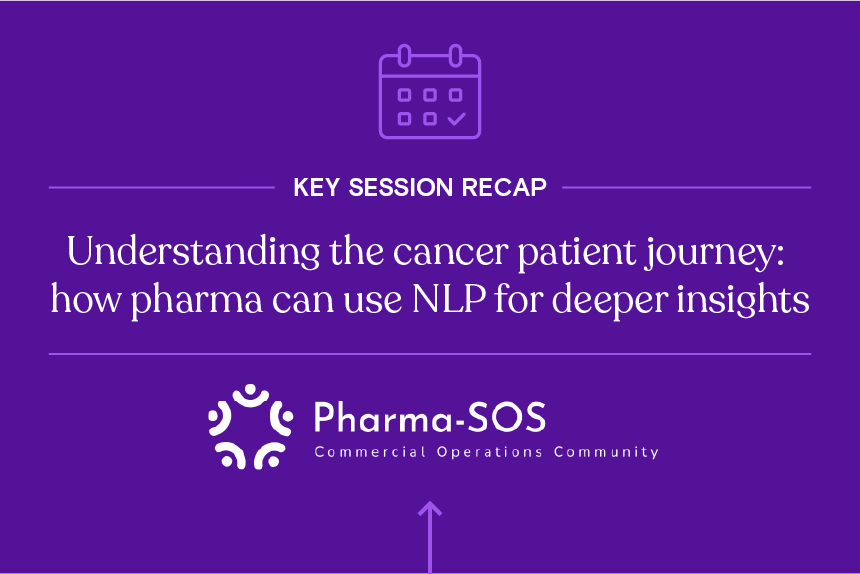Talk about a glow-up: Over the past couple of years, glucagon-like peptide-1 (GLP-1) drugs have grown from a leading treatment for type 2 diabetes into a sensational obesity management solution.
As the use of these therapies for weight loss shifted from off-label prescriptions to branded products like Novo Nordisk’s Wegovy (available as the generic semaglutide), life science developers and market analysts alike speculated how GLP-1 drugs could reshape the economy.
Would a slimmed-down consumer base put CPAP machine and gastric band manufacturers out of business? Could pharmacies keep up with high acquisition costs and low reimbursement rates? Not all the speculation has been cautionary, of course: Morgan Stanley analysts suggest overall healthcare savings associated with GLP-1-related weight loss could top $264 billion by 2035.
It could take years for us to fully grasp the impact of GLP-1’s expanded usage—especially as ongoing research finds new applications for conditions like cardiovascular disease, sleep apnea, and liver disease. But the biopharma space is already seeing one major change, as prominent developers leverage the popularity of these drugs to go off the beaten path toward a new, direct-to-consumer (DTC) business model.
What’s driving the shift in approach, and what does it mean for the future of Big Pharma? Let’s take a look.
Eli Lilly and Pfizer blaze distinct trails into consumer-facing care
For decades, the dominant pharmaceutical model was relatively simple: A developer designs and manufactures the drug, a wholesale distributor buys the drug, and pharmacies and providers in turn buy the drug from the distributor.
In January 2024, Eli Lilly decided to cut out the middleman and launch “LillyDirect,” a platform that enables consumers to directly purchase drugs online. Lilly’s vanguard offering on the platform is Zepbound, a new GLP-1 drug designed for weight loss that uses the same active ingredient (tirzepatide) found in its diabetes treatment, Mounjaro.
Even for a pharmaceutical titan, the move from manufacturing to direct-to-consumer (DTC) distribution is a giant operational leap. Because patients still require a doctor’s prescription to buy the drug directly, Lilly is now overseeing three different telehealth platforms, each targeting specific states, payors, and health conditions.
Furthermore, the company has followed up the DTC move with a $5.3 billion investment in an Indiana manufacturing plant to double its tirzepatide production capacity.
But Lilly won’t be alone in these uncharted waters for much longer—in August, Pfizer announced its plan to enter the DTC market with the “PfizerForAll” web platform.
The announcement comes as Pfizer conducts dose optimization studies for ganuglipron, an oral GLP-1 drug also designed specifically for weight loss.
Does this mean Pfizer and Lilly are poised for a DTC showdown? Not necessarily—in fact, each of the manufacturers’ digital portals is generally geared toward a distinct set of therapy areas, providers, and pharmacy partners with little overlap.
For instance, LillyDirect focuses on giving consumers access to its weight-loss and diabetes treatments, while PfizerForAll targets patients with respiratory illnesses like the flu, respiratory syncytial virus, and covid. Both platforms also offer migraine treatments.
Why go DTC at all?
The shift toward DTC sales by these biopharma giants reflects a broader transformation in healthcare overall. As patients increasingly seek convenience and control over their healthcare experiences, the demand for seamless, direct access to medications and care has grown. This has resulted in industry developments like the rise of retail care, telehealth, and concierge care.
Cut costs
Selling directly to consumers can also cut costs associated with traditional distributors, allowing manufacturers to pass some of those savings on to patients and ultimately improving access to medications.
Boost revenue
The DTC approach could also help Eli Lilly and Pfizer to recoup lost revenue. In Pfizer’s case, diminishing demand for its covid vaccines via state and local immunization drives has impacted earnings. The direct sales approach could generate new vaccine appointments and help the company sell more drugs designed to treat the symptoms of covid and other respiratory illnesses. Lilly is facing similar pressure as recent insulin price control legislation impacts revenue related to its diabetes treatment. LillyDirect presents an opportunity to get alternative diabetes and weight loss treatments in front of patients who can benefit from them, without requiring the patients to even leave the house.
Enhance the patient experience
Both companies’ DTC platforms offer another major benefit: enhanced control over the patient experience. By overseeing the prescription and distribution processes, Lilly and Pfizer can provide tailored education around their medications and manage the patient experience from diagnosis to drug delivery. This not only gives the developers a chance to create personalized experiences and improve medication adherence, but also allows them to gather critical data on patient preferences, behaviors, and care outcomes.
The future of DTC pharmaceuticals
Big Pharma’s entrance into the DTC market is a considerable shift from business as usual, and while the immediate benefits are clear—improved access and potentially lower costs—the industry should be ready to address concerns around data privacy, regulation adherence, and the technical requirements of large-scale telehealth operations.
Lilly and Pfizer may be the first pharmaceutical entrants into this space, but it’s unlikely they’ll be the last. Novo Nordisk has been running DTC marketing campaigns for Ozempic as far back as 2018. Launching a GLP-1-focused DTC sales platform could turn up the heat on their competition, especially Lilly with its similar consumer base.
Both Lilly and Pfizer have remained pretty tight-lipped about the financial performance of their platforms, with the latter going as far as saying it’s not holding revenue targets for PfizerForAll. But time will make clear whether these platforms are meeting their operators’ expectations. If the models prove successful, expect other manufacturers to follow them down this newly carved path.
Want a closer look into the pharmaceutical market? Definitive Healthcare’s commercial intelligence platform delivers powerful insights on pharmaceuticals, the providers prescribing them, and the patients who rely on them.
Sign up for a free trial today and see how our data and analytics can help you achieve commercial success in the healthcare industry.





